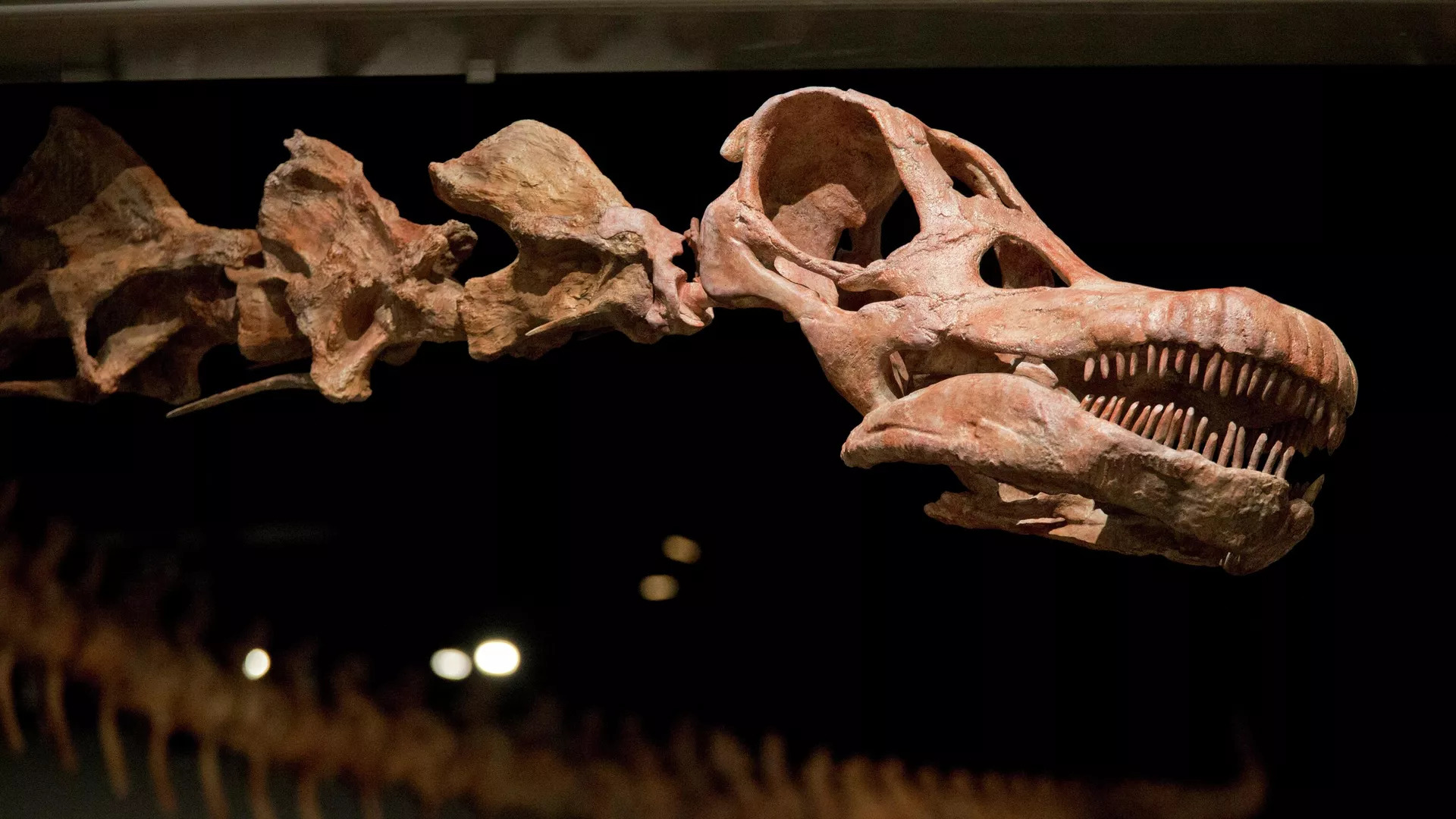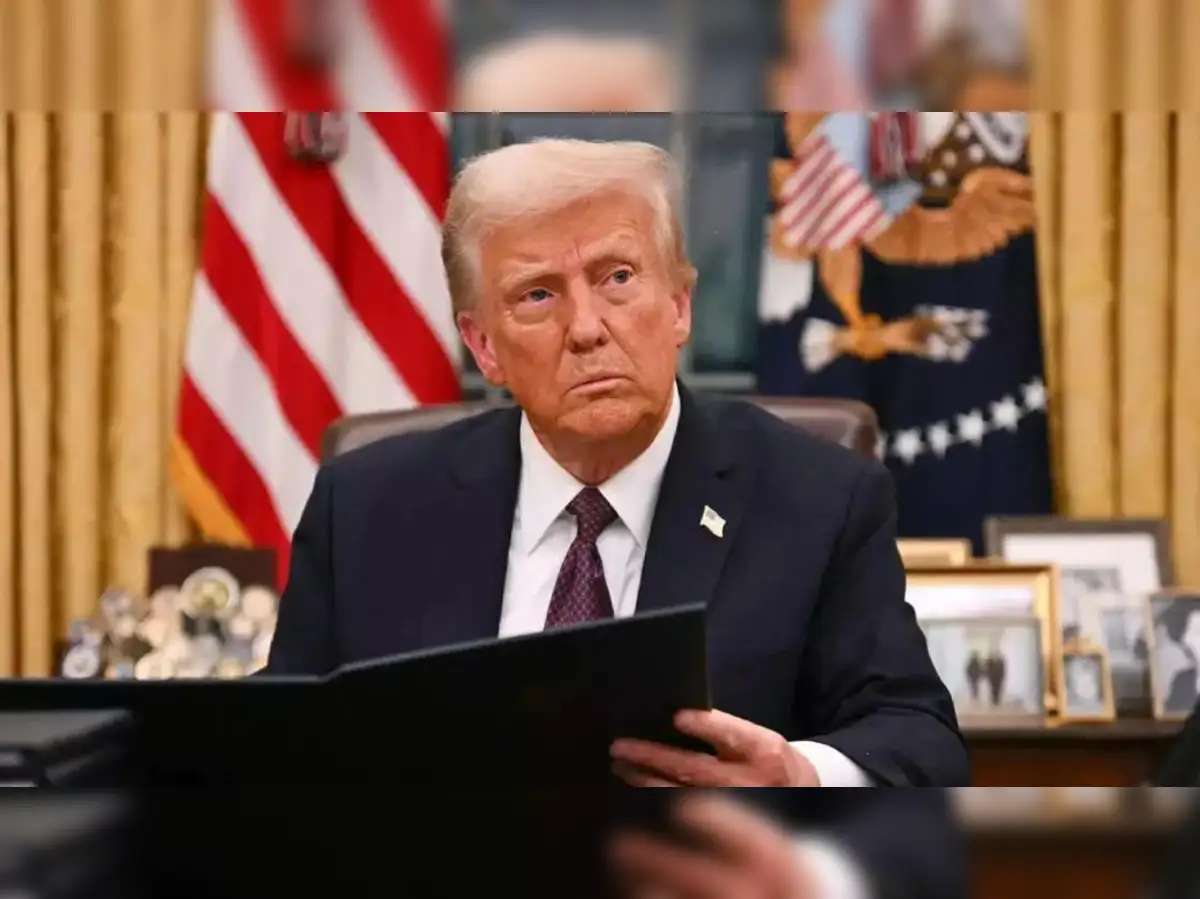
In a move that has stirred global controversy and ignited debates across scientific, cultural, and economic circles, an anonymous buyer in India recently spent a staggering ₹263 crore (approximately USD 32 million) to acquire a fossil of a 150-million-year-old dinosaur. This sale, conducted through a private auction, has not only shattered records but also raised profound questions about the ethics, legality, and future of fossil trading in the modern world.
Details of the Sale and the Fossil
The fossil in question is believed to belong to a species that roamed our planet during the Jurassic period. What makes this deal particularly notable is its price tag, which surpasses many high-profile art sales and priceless artifacts. According to reports from Mint, social media users are debating intensely, with some even asking, “Bezos or Musk?”— pondering who among the world’s wealthiest could be bold enough or wealthy enough to make such a purchase.
This sale is the most expensive ever recorded for a dinosaur fossil, emphasizing its rarity and significance. The specific details about the fossil’s provenance and the buyer remain confidential, fueling speculations and conspiracy theories about the true origin of the specimen and the motives behind the private sale.
Global Reactions and Ethical Concerns
Legal and Ethical Questions
The sale has reignited the age-old debate surrounding the legality of fossil trade, especially when fossils are excavated without proper permits or trading restrictions. Many paleontologists and environmental activists argue that such high-value transactions promote illegal smuggling of fossils, often leading to damage or destruction of important scientific specimens. Critics highlight that fossils, much like ancient artifacts, should be preserved for scientific study and public education rather than hidden away in private collections.
Moreover, several countries, including India, have stringent laws that prohibit the private ownership and sale of fossils to protect their scientific and cultural heritage. The fact that this fossil was sold possibly through a clandestine transfer underscores the need for stricter enforcement and international cooperation in regulating fossil trade.
Impact on Science and Public Access
One of the central concerns among the scientific community is the loss of invaluable specimens from public museums and research institutions. When fossils are locked away in private vaults, their scientific potential is often compromised. Researchers argue that such specimens should be accessible for detailed study, which can lead to new discoveries about prehistoric life, climate change, and Earth’s history.
Comparison with Other Record-Breaking Fossil Sales
The recent sale of a juvenile dinosaur, the Ceratosaurus, for a staggering $30.5 million at Sotheby’s auction, illustrates how high the stakes have become in the fossil market. This specimen, featured prominently in media outlets like The Economic Times, exemplifies how collectors and investors view fossils not just as scientific treasures but as lucrative assets or status symbols.
Similarly, a rare Jurassic skeleton fetched more than $30 million at a Sotheby’s ‘Geek Week’ auction, with some specimens even fetching prices as high as $30 million, as reported by Mathrubhumi English. These high-profile sales, often covered extensively in the media, have propelled fossils into the realm of luxury collectibles, raising ethical dilemmas about their true value.
The Broader Implications of the Sale
Market Dynamics and Wealth Concentration
The phenomenon of fossil sales reaching hundreds of millions underscores the growing trend of collecting prehistoric relics among the ultra-wealthy. This trend, reminiscent of art collecting or investing in rare coins, reflects a shift towards viewing natural history specimens as alternative assets.
It also prompts questions about the concentration of cultural and scientific heritage within private hands, and what this means for public access and education. Could these invaluable discoveries someday be forever lost from scientific research if owned by private collectors with limited sharing interests? These concerns are integral to the ongoing debate about fossil trade regulations.
Potential Impact on Scientific Research and Preservation
Scarce fossils, like the ones sold recently, are critical to understanding our planet’s prehistoric ecosystems. When such fossils remain in the hands of private collectors, access for scientists diminishes, potentially delaying or halting vital research. The sale of such specimens also raises questions about the preservation standards applied outside institutional settings, possibly leading to damage or deterioration over time.
International Efforts and Future Outlook
In response to these high-profile sales, international agencies and governments are contemplating stricter controls. UNESCO, along with national governments, advocates for banning the private possession of significant fossils and promoting their inclusion in public institutions. Some countries are exploring legislation to penalize illegal fossil trafficking, while also working toward international treaties to regulate the fossil trade globally.
As awareness about these issues grows, the fossil market might see a shift toward more transparent and regulated practices. The debate over whether fossils should be considered public heritage or private property is likely to intensify, especially in the wake of record-breaking sales like that of India’s ₹263 crore fossil.
Conclusion: A Delicate Balance Between Preservation, Science, and Wealth
The sale of this extraordinary dinosaur fossil for ₹263 crore has cast a spotlight on the complex intersection of science, culture, legality, and wealth. While the transaction symbolizes the increasing value placed on prehistoric relics, it also highlights the pressing need for ethical and legal frameworks to ensure these objects serve their rightful purpose — enriching our understanding of Earth’s history for all humanity.
Whether this sale will lead to tighter regulations or serve as a catalyst for further wealth-driven fossil trading remains to be seen. However, it undeniably opens a broader conversation about our responsibility toward preserving natural heritage amid a rapidly changing world.
As the debate continues, one thing remains clear: the fascination with Earth’s distant past holds both incredible potential for discovery and significant risks of exploitation. Navigating this landscape thoughtfully is essential for securing a future where science, heritage, and ethical standards flourish side by side.
For more updated news please keep visiting Prime News World.








